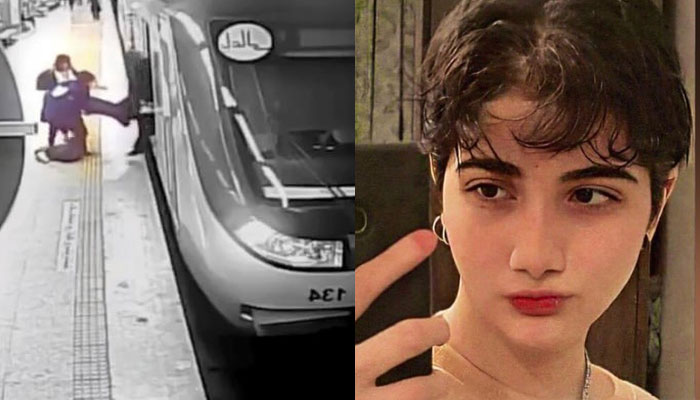16-year-old Iranian girl 'brain dead' after altercation over hijab violation
Iranian authorities have denied any harm coming to Geravand following an altercation with officers on October 1
A 16-year-old Iranian girl, who lapsed into a coma earlier this month following an alleged incident involving authorities over her violation of the country's hijab law, is reportedly in a "brain-dead" condition, as per Iranian state media's report on Sunday.
Human rights organisations, including Kurdish-Iranian Hengaw, were the first to bring Armita Geravand's hospitalisation to the public's attention. They shared images of the unconscious teenager on social media, revealing her connected to life support with a respiratory tube and a bandage on her head. It's important to note that Reuters couldn't independently verify the authenticity of these images.
According to state media reports, the most recent updates on Geravand's health strongly indicate that she is now "brain-dead," despite the medical staff's best efforts.
This situation has raised concerns among human rights advocates, reminiscent of the fate of Mahsa Amini, whose death while in the custody of morality police last year triggered widespread anti-government protests that presented a bold challenge to Iran's clerical leaders.
Iranian authorities have denied any harm coming to Geravand following an altercation with officers on October 1, related to the enforcement of the mandatory Islamic dress code within the Tehran metro.
Since the popular revolution in 1979, which ousted the secular and Western-backed Shah, Iran's theocratic establishment has imposed strict rules on women's attire. Women are legally obligated to cover their hair and wear long, loose-fitting clothing.
Violators of these dress code regulations can face public admonishment, fines, or even arrests. After Amini's death, more women have been openly challenging the strict Islamic dress code, appearing unveiled in public spaces like malls, restaurants, and shops across the country.
-
Poll reveals majority of Americans' views on Bad Bunny
-
Man convicted after DNA links him to 20-year-old rape case
-
California cop accused of using bogus 911 calls to reach ex-partner
-
'Elderly' nanny arrested by ICE outside employer's home, freed after judge's order
-
key details from Germany's multimillion-euro heist revealed
-
Search for Savannah Guthrie’s abducted mom enters unthinkable phase
-
Barack Obama addresses UFO mystery: Aliens are ‘real’ but debunks Area 51 conspiracy theories
-
Rosie O’Donnell secretly returned to US to test safety












